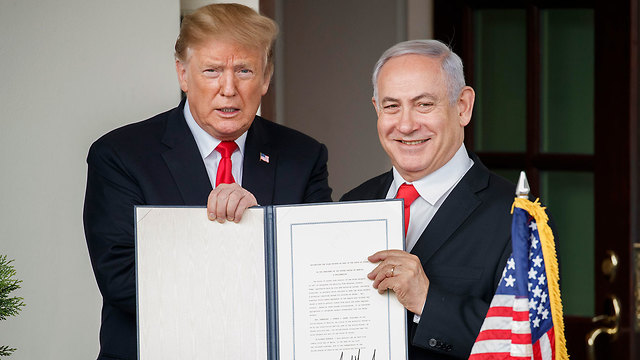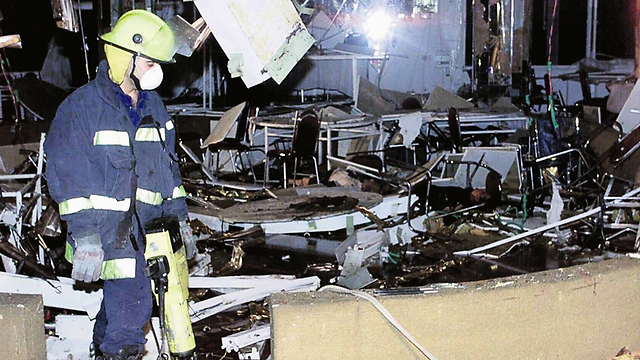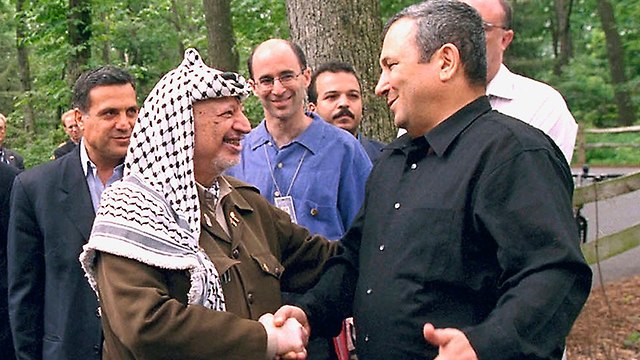
Main problem with Trump's peace plan
Opinion: Israelis have learned through bitter experience to fear peace deals, and whether or not this is the most pro-Israel agreement in history, these things have a habit of exacting a heavy price in blood
The upcoming publication of President Donald Trump's deal of the century is putting the region on edge. Conflicting reports of the content of the peace deal are taunting us - and probably will for months more. The Palestinian Authority is anxious about the deal and even in Israel the details aren't met with much enthusiasm.
Israel should - for the time being - be celebrating. The details of the deal have yet to come out but it is already clear that it will be much better for Israel than any other deal proposed by a third party in recent decades.

Naturally, there is much doubt over whether Trump has truly been the best US president for Israel. Think whatever you want about Trump as a person, but there is no doubt that his administration is the best we could hope for. We had yet another example of this in the past few weeks, with Trump recognizing Israel's sovereignty over the Golan Heights. Three or four years ago no one in Israel could have dreamt of such a massive gesture. So why are we still worried about the deal of the century?
Truthfully, the uncertainties stem not from the main contents of the deal' the main problem is with its very existence. Our painful experience as Israelis has taught us to always fear proposed peace deals because they tend to end in bloodshed.
Everyone who lived in Israel in the mid-90s remembers the rivers of blood that drowned the Oslo Accords. A wave of suicide terror attacks in the two years between September 1993 (when the accords were signed) and September 1995 murdered 164 Israelis.
And a few years later, when the peace talks with the Palestinians at Camp David reached a dead end in July 2000, the result was the Second Intifada. This uprising was deadlier than the first, and claimed the lives of more than 500 Israelis alone in the 18 months between the start of the intifada and Operation Defensive Shield in Passover 2002.
These are just two examples that stand out.
The knowledge that a political process and specifically its outcome is the trigger for bloodshed causes us to fear any such process. The deal of the century is no different. Ehud Barak, who was prime minister during the Camp David summit, once said that the failure of peace negotiations exposed the true nature of the Palestinians, but it is worth it at such a deadly cost?

Thus, while we have great appreciation for Trump's administration and its giant pro-Israeli gestures, we must caution against the danger of promoting it as the deal of the century.
The thought of trumpeting the end of the conflict through some plan or another might well prove deadly to all sides.











